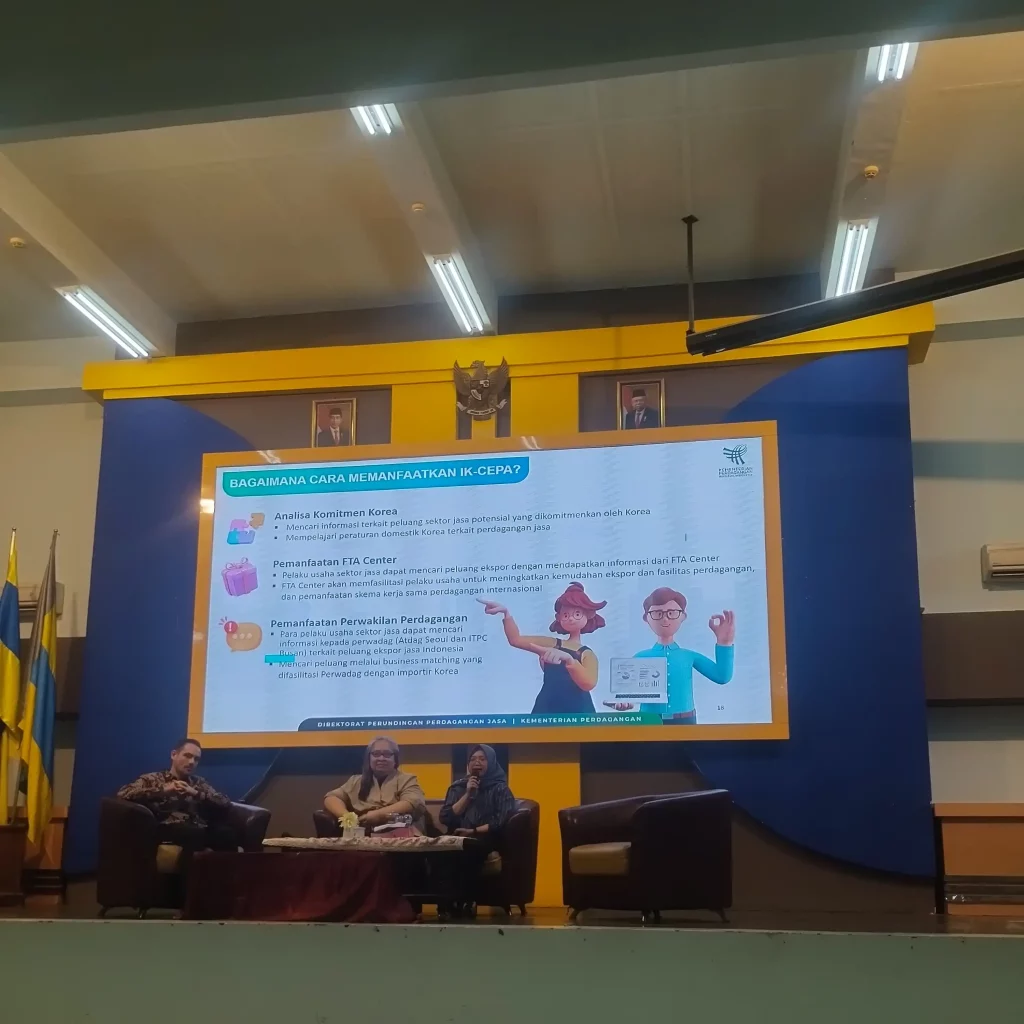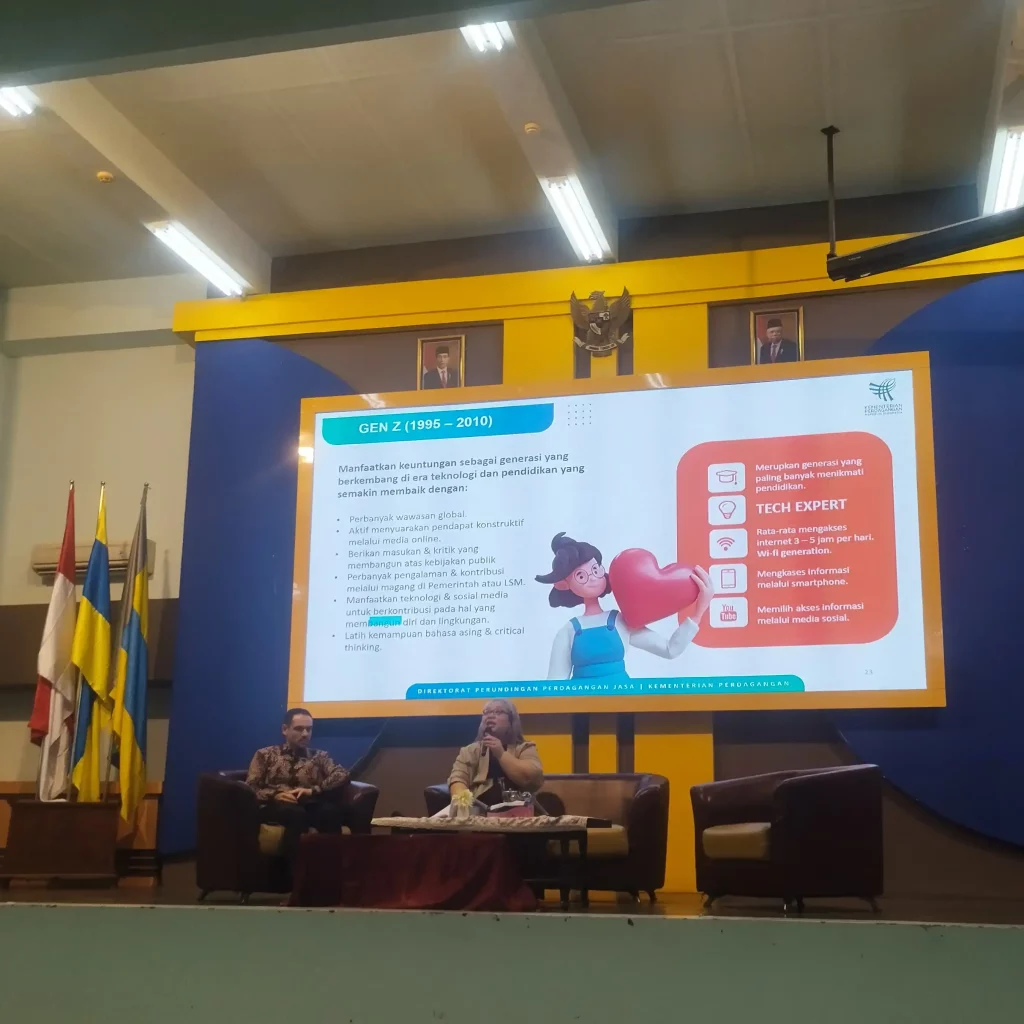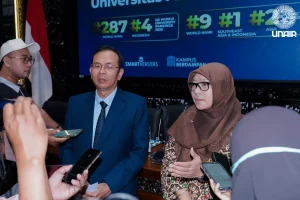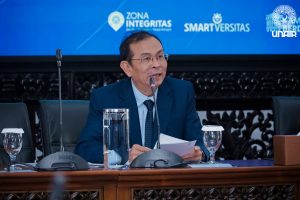UNAIR NEWS – Before the pandemic, Indonesia’s trade in services was insignificant. Four years later, 55 percent of Indonesia’s trade agreements are dominated by services. This can be leveraged by Gen Z in the upcoming demographic bonus.
These points were announced in the National Seminar on Trade in Services Agreements in Indonesia-South Korea Economic Cooperation, organized by the Department of Economics and the Directorate of Trade in Services Negotiations, Ministry of Trade of the Republic of Indonesia. The seminar was held on Thursday, March 14, 2024, at the Soepoyo Auditorium, Faculty of Economics and Business (FEB), Dharmawangsa-B Campus, Universitas Airlangga.
Among the guest speakers were Basaria Tiara Desika L. Gaol, SE, MM, the Director of Trade Negotiations for Services Directorate General of PPI, Ministry of Trade of the Republic of Indonesia; Ririh Hidayah Lila Ratna Ningrum, Ssi, MEcDev, the negotiator of Trade Expertise; and Dean of FEB UNAIR, Prof. Dr. Dian Agustina, SE, MSi, PhD, along with her team.
“The subject is frequently overlooked as the focus tends to be on natural resources rather than services. Hopefully, this seminar will broaden our perspective on the service sector, given that Indonesia already has numerous free trade agreements,” said Prof. Dian in her welcoming speech.

Trade in services agreements
In 2023, Indonesia’s trade value decreased by 9.19 percent compared to the previous year. Tiara believes this decline is attributed to five factors: uncertainty in bilateral systems; war in Russia-Ukraine and Israel-Palestine genocide; the threat of hyperinflation; trade wars between the US and China; and protectionist and populist policies.
Improving the use of international trade negotiation results is necessary to bolster national economic growth. Trade agreements are specific, mutually advantageous deals characterized by fairness and involving two or more countries.
“In the service sector, there are four modes: cross-border supply such as Amazon, consumption abroad like tourists using national travel services, commercial presence such as Samsung branches in Indonesia, and presence of natural persons such as Korean workers in Samsung Indonesia,” she explained.
Gen Z and IK-CEPA
Tiara encourages Gen Z to leverage the Indonesia-Korea Comprehensive Economic Partnership Agreement (IK-CEPA) to boost the national economy. Gen Z is well-suited due to their high level of education, proficiency in technology, and active online presence. Given the future advancements in technology, Gen Z can easily adapt to and make use of IK-CEPA.
“IK-CEPA can be used in three ways: analyzing Korea’s commitments, using the Free Trade Agreement, and leveraging trade representatives,” added Ririh.
By exploring information on the service sector opportunities pledged by Korea, entrepreneurs can also identify export opportunities using data from the FTA Center, and explore potential matches through business matching facilitated by Trade Representatives (Perwadag).
Author: Muhammad Naqsya Riwansia
Editor: Feri Fenoria









